Group gardening is fun, sociable, good for your health and rapidly growing in popularity. And with this years’ Cultivation Street competition, sponsored by Calliope,® launching today it can also give you an unexpected windfall! The competition, which is now in its seventh year, has given away over £120,000 and thousands of free Calliope® geraniums to date.
This year, there’s nearly £20,000 in prizes up for grabs for outstanding school and community gardening projects across Britain, as well as the opportunity to get your hands on some marvellous Calliope® geraniums to colour your life at home in our exciting prize giveaway.
Benefits abound
Working as a team to create and maintain a community garden has a ton of benefits. It lifts the neighbourhood by turning disused spaces into beautiful spaces for everyone to enjoy, creates community spirit as locals get to know one another, and even improves people’s diets as they grow their own fruits and veggies.
Not only that, community gardens create space for native wildlife to flourish as flowers provide nectar sources for pollinators and water features offer a home to frogs and toads as well as welcome drink for all garden creatures.
Getting out in nature, exercising and connecting with people have all been shown to positively affect on our mental and physical health, so if you’re looking for a boost, look no further – community gardening is just the ticket! There really is no end to the benefits of community gardening!
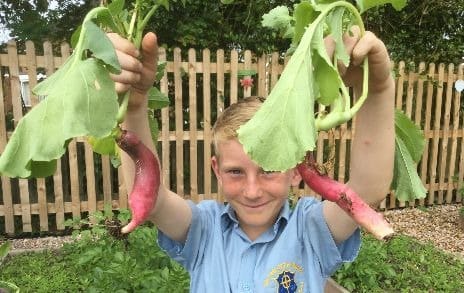
Something for everyone
Whether you’re a complete beginner or a dab hand at gardening, there’s something in joining a gardening group for you. Put something back by sharing your wealth of experience with budding gardeners or exercise your brain by learning new skills from others. Both have been shown to boost people’s happiness levels and, if you plant easy-to-grow crops, like courgettes and tomatoes, it’ll stock up your larder too!
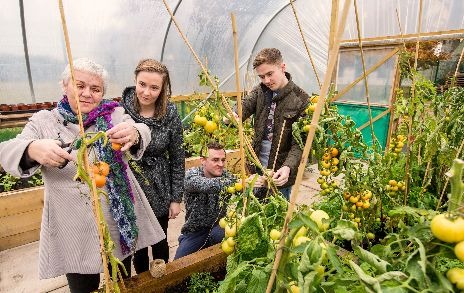
Gardening is also incredibly versatile. If you’re fit and strong and fancy some decent exercise, you can get stuck in planting trees or digging muck into borders.
If you’re in need of a gentler approach, you can sow seeds or plant out containers.
People who find it difficult to bend can garden in raised beds, people with poor sight can plant for feel, smell and taste instead of look, and people with disabilities can garden with specially adapted tools. Able-bodied or disabled, young or old, gardening has something for everyone.
Gardening with kids
Gardening is also a great source of activities for children who are local to a community garden or have a garden at school. Growing potatoes in a dustbin is a favourite of mine and superb fun, but don’t stop there!

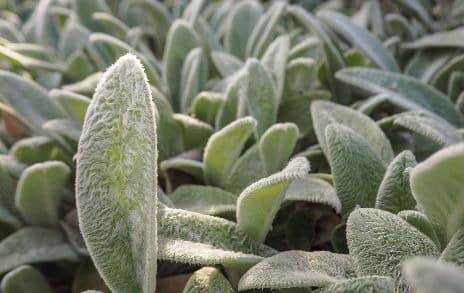

Plant strawberries that they can pluck off the bush for a quick snack, create a sensory garden with chocolate mint plants, woolly-feel lamb’s ear and sherbet-scented lemon verbena to titillate their senses, and let them paint stones with acrylic paint as seed labels. The world is your oyster!
If you have enough space in the garden, you can even section off a bed and give ownership of it to the kids. There’s nothing more exciting than visiting the local garden centre with little ones and getting them to choose their own seeds.
My dad did this with me when I was a lad and I loved planning out what I was going to plant and then watching everything grow. It gave me a real sense of achievement and purpose. Ideas like this get kids outside in the fresh air, give them some exercise and get them engaging with nature.
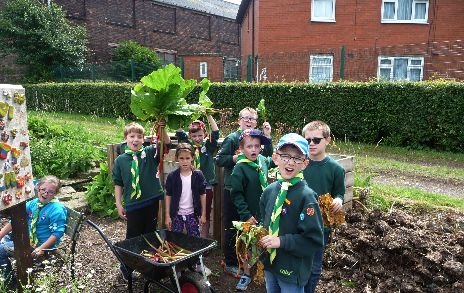
Competition categories
If I’ve whetted your appetite for gardening together, find out more at cultivationstreet.com.
There, you’ll find a wealth of resources to get you started, so join the campaign and make a difference.
Happy gardening!
Tip:
Load your soil or debris into the
far end of the wheelbarrow so, when lifting it,
the position of the load will put less strain
on your back and arms.
Reader questions
Will out of date seeds still germinate?

Yes, they can but it largely depends on how they’ve been stored. Some seeds, like carrots and tomatoes can last as long as four years if kept cool, dry and out of direct light, while others such as peppers or corn are unlikely to keep for more than two years.
How can I cheaply give plants a boost?

Plants love starch, so whenever you cook potatoes or pasta, save the cooled water and pour on your veg or flower beds. Similarly, you can collect nettles and soak them in rain water for two weeks, leaving you with a liquid fertiliser that is packed full of nutrients.
David Domoney is a Chartered Horticulturalist, Broadcaster, and Author. David has worked with a number of the UK’s leading garden retailers as a plant buyer and strategic consultant. With more than 30 years experience, in horticulture, David is as passionate about plants now as he was when he bought his first plant at a village fete.

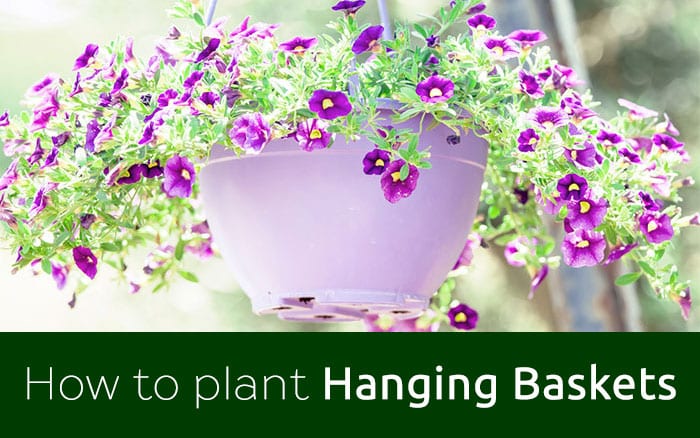
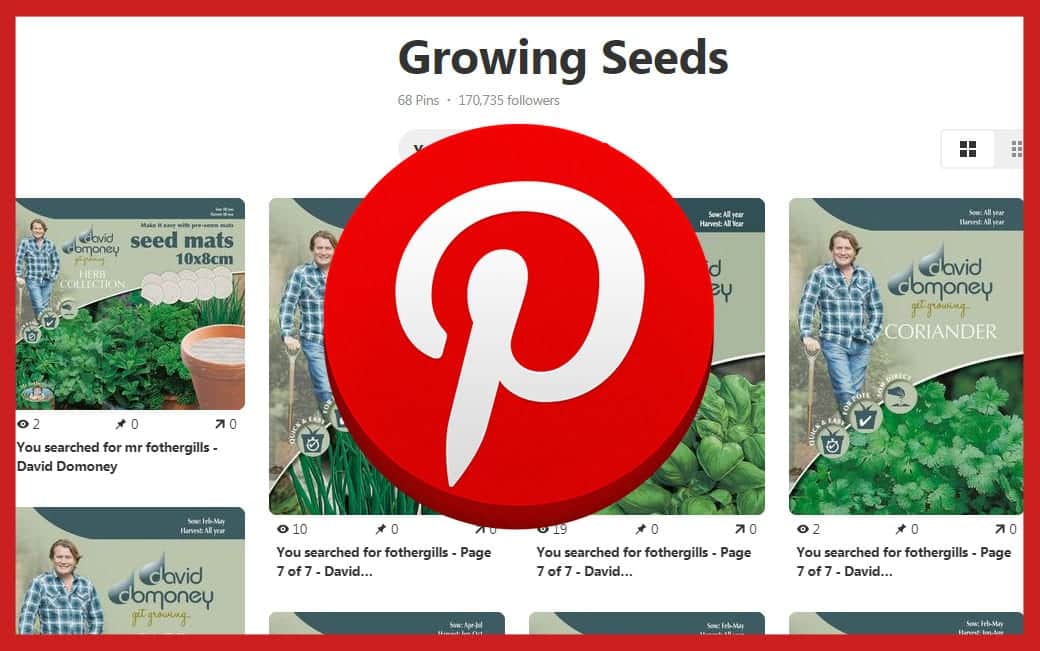



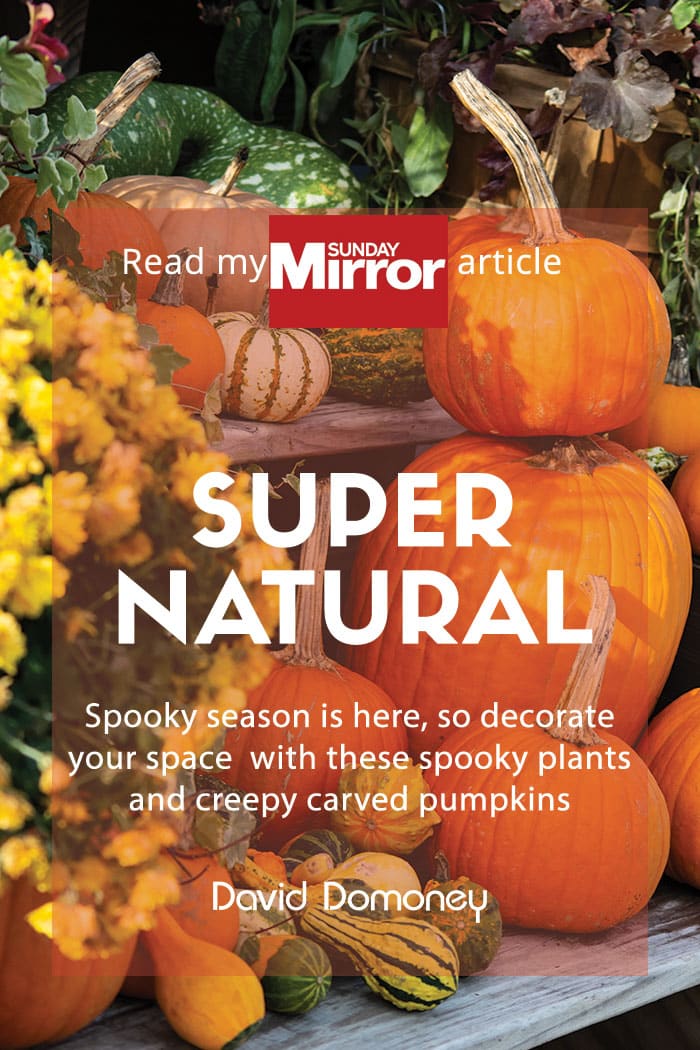
Leave A Comment